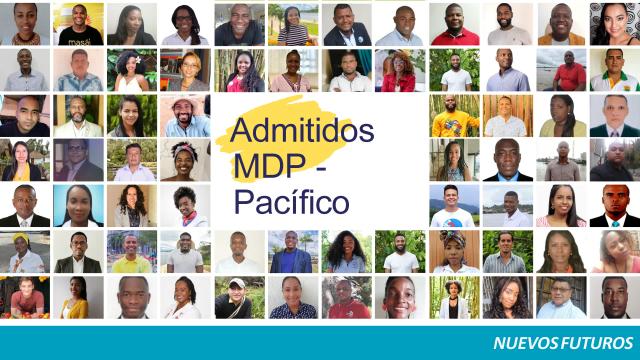Colombia’s MDP Welcomes a Cohort of 60 African Heritage and Indigenous Students!
Where there is a will, there is a way! The intellectual leader, Professor Manuel Rodriguez Becerra, of the Master’s in Development Management and Practice (MDP) at the University of Los Andes (UniAndes) , Colombia, has achieved a long sought goal—the expansion of the MDP program to students, specifically Afro-Colombians and Indigenous people, who typically cannot afford an education at what is known as one of the best academic institutions, if not the Harvard, of Colombia.
I remember traveling with Professor Manuel Rodriguez Becerra on an exploration trip of Colombia, and others, during my first visit to the country in 2011. Professor Rodriguez Becerra was, at that time, the head of the academic department at UniAndes where the MDP was to be launched in 2012 and as the country’s former Prime Minister of the Environment, he volunteered as our informal tour guide. We traveled to an area of Colombia that is far from the well-trodden tourist paths of Bogota, Cali, and Medellin, and heard about his vision for the MDP. His ideas were expansive. He not only hoped that financially under-resourced students would be able to participate with scholarship funding, but that students from Colombia’s most needy communities—those from the African and Indigenous communities in the Pacific and other regions of the country—would be able to enroll in significant numbers.
On this same 2011 trip to Bogota, I had not seen many people of color on its streets or in the university halls of UniAndes. In fact, up until Professor Rodriguez Becerra brought up the topic, I was unaware of the large African or Indigenous population in Colombia (at least 10% of the 50 million inhabitants identify as Afro-Colombian in addition to 3.4% who are Indigenous). It was not until I traveled to the Chocó, one of the places we travelled to on this exploration trip—an area of Western Colombia known for its large Afro-Colombian population with one of the lowest standards of living in all of Colombia—that I too realized the magnitude of the work that needed to be done.
The stories of social, economic, and political exclusion from mainstream Colombian life that I heard in the Chocó from the people we met were not surprising. As an Afro-Cuban woman I immediately understood their lived experiences in a country they called their own but to which their ancestors were forcefully relocated during the slave trade and were currently the so-called minority. It was disappointing to know that, like many parts of the world, the ugly vestiges of racism, exclusion, inequality, and inequity were alive and well. In fact, José Caparroso, a writer for Forbes magazine, mentioned in an article that about 81% of the population of Colombia that is recognized as Black or Indigenous work in the informal sector out of necessity, not choice.
Thus, when Professor Rodriguez Becerras’s dream became a reality and UniAndes received the funding to provide quality postgraduate higher education to a number of Colombians of African and Indigenous heritage, it was indeed a day to celebrate. On January 25, 2021, UniAndes announced that 60 full-scholarships would be awarded to Afro-Colombians and Indigenous leaders to study at their MDP program. The beneficiaries of such an accomplishment are not only the individual students who will receive the scholarships but the broader UniAndes community and society in general who will be exposed to other perspectives and ways of doing things, as these 60 leaders graduate and assume leadership roles with broader, local, regional and national impact. It took time to accomplish this dream, but the commitment to support people who have been historically disfranchised from their right to quality and equitable education is something that all academic institutions and countries should strive for.
According to the director of the MDP at UniAndes, Diana Marcela Puertas Lopez, the 60 recipients are already leaders in their local and regional areas of Colombia. Now, with the assistance of the full-scholarships, they will be able to further their professional education and work on alternative answers to questions such as: What type of leadership does the region require? What is the role of leadership in development? What type of power and leadership is required to manage equitable development in a time of crisis? Watch the 25 January launch and hear from some of the 60 scholarship recipients here. A full PowerPoint with all recipients can be accessed here.
Finally, this scholarship opportunity is possible thanks to the generosity of the Second Generation of the Pacific Power Education Fund, one of the components of the Pacific Advance Program carried out by the Visible Hands Corporation with the support of the United States Agency for International Development- Colombia. The global speakers at the January 25 launch of this scholarship opportunity included:
- Philip Goldberg, Ambassador of the United States to Colombia
- Jeffrey Sachs, SDSN President and director of the Center for Sustainable Development at Columbia University, USA
- Alejandro Gaviria, Rector of the University of los Andes, Colombia
- Paula Moreno Zapata, Rresident of Visible Hands and Colombia’s former Minister of Culture
- Diana Marcela Puerta Lopez, Director of the MDP program at UnidAndes
